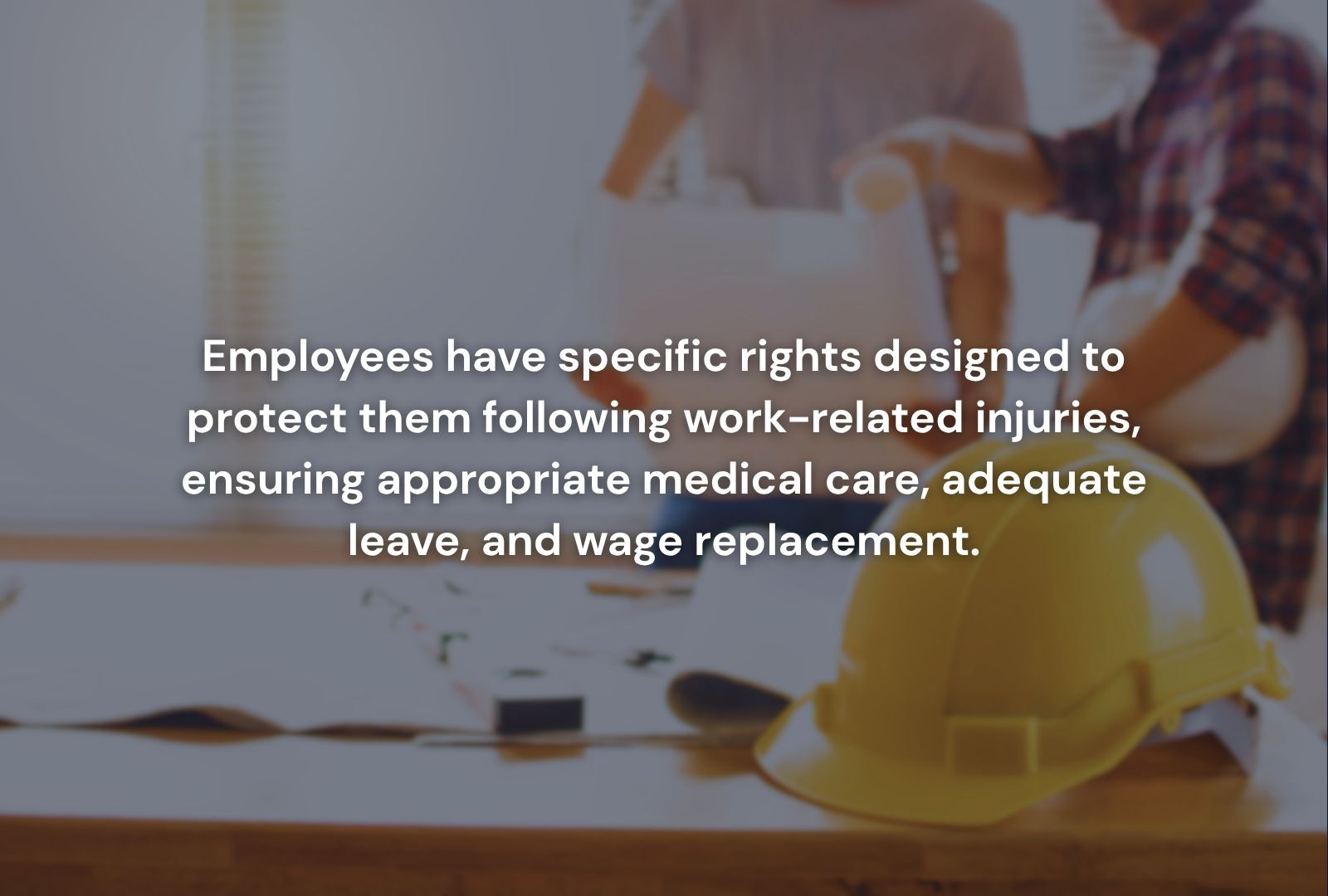Employees have specific rights designed to protect them following work-related injuries, ensuring appropriate medical care, adequate leave, and wage replacement. Knowing these rights empowers workers to advocate for themselves effectively and receive proper support during recovery.

If your workplace injury is severe or your rights are compromised, promptly consulting a personal injury lawyer is essential for safeguarding your interests.
Right to Immediate Medical Care
Employees are entitled to immediate medical treatment after a work-related injury, at no initial cost to them. Employers typically must cover:
- Emergency medical care and ambulance transport
- Hospitalization and surgical procedures
- Doctor appointments and medications
- Rehabilitation and therapy services
Prompt medical intervention is critical not only for recovery but also for documenting injuries clearly and effectively for compensation claims.

Right to File a Workers Compensation Claim
Workers have a clear right to file a workers compensation claim without employer retaliation. The workers compensation system provides wage replacement, medical care coverage, and disability payments.
It's crucial to complete accurate injury documentation promptly. Utilizing an injury report form template ensures comprehensive and consistent reporting, reducing the likelihood of denied claims.
Protection Against Employer Retaliation
Federal and state laws prohibit employers from retaliating against employees who report work-related injuries or file compensation claims. Retaliation includes:
- Termination or demotion
- Reduced hours or pay
- Negative performance evaluations
- Harassment or discrimination
Employees experiencing retaliation have the legal right to file complaints and seek remedies through labor agencies or courts.
Right to Disability Benefits

If injuries prevent employees from working temporarily or permanently, workers compensation provides disability benefits:
- Temporary Disability Benefits: Wage replacement if you cannot perform your job temporarily.
- Permanent Disability Benefits: Long-term financial support if injuries permanently limit your ability to work.
Properly understanding and asserting your right to these benefits ensures financial security during periods of recovery and beyond.
Right to Return to Work
Employees have the right to return to their jobs once medically cleared by their healthcare provider. Employers generally must accommodate any medically recommended work restrictions. Accommodations may include modified tasks, reduced hours, or ergonomic adjustments.
Family and Medical Leave Rights
The Family and Medical Leave Act (FMLA) provides eligible employees with up to 12 weeks of unpaid, job-protected leave annually for serious medical conditions, including workplace injuries. FMLA leave ensures:
- Job security during leave
- Continued group health insurance coverage
- Protection from employer penalties for taking leave
Eligibility typically requires at least 12 months of employment and a minimum of 1,250 work hours within the preceding year.
Common Mistakes Employees Make After Injury
Avoid these frequent errors to protect your rights effectively:
- Delayed Reporting: Immediately notify your employer of any injury.
- Incomplete Documentation: Thoroughly document all medical treatments and communications.
- Accepting Initial Settlements Prematurely: Carefully review compensation offers, ideally with legal counsel.
Further Workplace Injury Protection Measures
Beyond understanding basic rights, consider exploring related safety and compensation areas:
- Workers Compensation Insurance: Familiarize yourself with coverage types and procedures to ensure adequate benefits following workplace incidents.
- Workplace Accident Prevention: Gain insight into common causes and prevention strategies to help reduce injury risks at your workplace.
- Workers Compensation Laws: Review specific state-by-state regulations to ensure thorough compliance and maximum benefit utilization.
Proactively engaging with these topics enhances overall workplace safety and preparedness.
Conclusion: Advocate for Your Employee Rights
Clearly understanding your rights after a work-related injury ensures you receive appropriate medical care, leave, and compensation. Prompt, informed action protects your health, financial stability, and employment security. Being proactive and knowledgeable equips you to effectively navigate the complexities following workplace injuries.


















